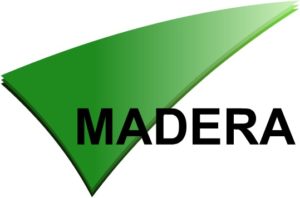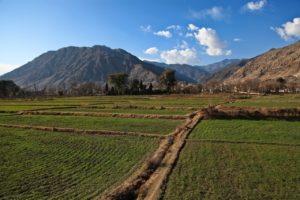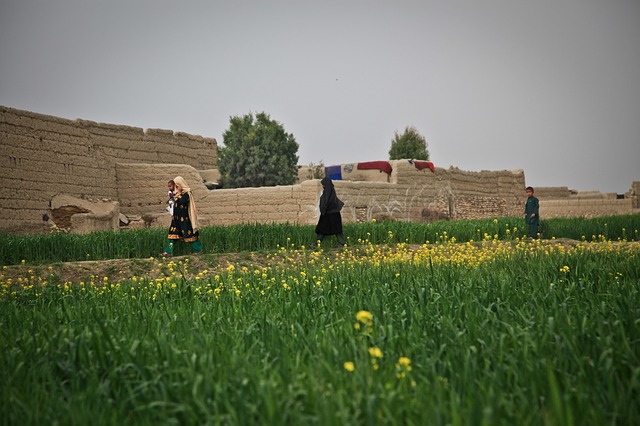 The French NGO Mission d’Aide au Développement des Economies Rurales en Afghanistan (MADERA) supports village communities in Afghanistan by facilitating programs to restore food production capabilities, enhance agricultural and horticultural produce quality, and raise the income of local farmers. Established in 1988 by founding members from multiple European countries, MADERA was formed to help Afghans in rural areas during the Soviet invasion of the country. Its actions during this period consisted of small-scale seed distribution and veterinary services in the provinces of Kunar and Nuristan.
The French NGO Mission d’Aide au Développement des Economies Rurales en Afghanistan (MADERA) supports village communities in Afghanistan by facilitating programs to restore food production capabilities, enhance agricultural and horticultural produce quality, and raise the income of local farmers. Established in 1988 by founding members from multiple European countries, MADERA was formed to help Afghans in rural areas during the Soviet invasion of the country. Its actions during this period consisted of small-scale seed distribution and veterinary services in the provinces of Kunar and Nuristan.
In the years following the 1989 withdrawal of Soviet forces, the return of thousands of refugee families from Pakistan and the availability of international funding for the reconstruction of Afghanistan prompted MADERA to begin the expansion of its operations. Since that time, the organization has implemented programs that encompass a broad range of activities, from the rehabilitation of rangeland and the construction of irrigation and drainage systems to animal vaccination initiatives and support for a network of veterinary care facilities.
A Participatory Approach to Rural Development
With headquarters in Kabul and a field staff of roughly 250 Afghan employees, MADERA currently engages in projects throughout four provinces in Eastern Afghanistan and in two provinces in the Hazarajat central highlands. MADERA considers continuing development efforts in such rural regions of crucial importance to the independence and food security of Afghanistan. Close to 80% of Afghans rely upon agricultural production for their livelihoods, yet this sector of the economy only accounts for just over 30% of the country’s GDP.
Focused on empowering rural communities and building their capacity to manage the development of their own lands, MADERA utilizes a participatory approach to collaborate with local residents in the creation of integrated programs matched to their specific needs. Encouraging villagers to take part in project planning allows them to play a central role in MADERA’s interventions and ensures that all actions are prioritized according to real concerns in the local area. Furthermore, ownership of the development process by community members promotes sustainable continuation of programs and lasting benefits.
To assure that all community members have a voice in project development decisions, MADERA follows the deliberations of traditional village councils, referred to as Shura in Dari and Djirah in Pashto. These meetings give local residents the opportunity to debate matters of collective interest and provide an egalitarian platform through which to achieve a shared consensus on the implementation of projects.
Reviving Communities in the Eastern Provinces
 MADERA first began its efforts to strengthen Afghanistan’s rural economies in the country’s eastern provinces. Over the years, it has helped restore villages abandoned during the Soviet-Afghan War through such endeavors as fostering fruit-tree nurseries, helping farmers return fallow land to cultivation, and improving the quality of the seed supply.
MADERA first began its efforts to strengthen Afghanistan’s rural economies in the country’s eastern provinces. Over the years, it has helped restore villages abandoned during the Soviet-Afghan War through such endeavors as fostering fruit-tree nurseries, helping farmers return fallow land to cultivation, and improving the quality of the seed supply.
Drawing on its extensive experience in the region, MADERA serves as a facilitating partner for the government of Afghanistan’s National Solidarity Program (NSP) in the provinces of Kunar, Laghman, and Nuristan. The NSP is administered by the Ministry of Rural Rehabilitation and Development, and its facilitating partners help establish community development committees (CDCs) in rural communities across the country. Each CDC comprises a democratically nominated self-governing body responsible for organizing and advancing their community’s development interests.
On behalf of the UN World Food Program, MADERA monitors food distribution operations in areas of Eastern Afghanistan considered too insecure for UN personnel to enter. At schools, hospitals, refugee camps and other distribution locations, MADERA staff assess the requirements of aid recipients and make certain they obtain the rations they need.
In collaboration with Relief International, MADERA operates Support to Animal Health and Animal Husbandry, a four-year project funded by the European Commission to improve access to animal vaccination and health services in the eastern provinces and neighboring territories by establishing a region-wide system of para-veterinary professionals. The initiative aims to improve livestock health in these areas and thereby expand herds and boost productivity. Livestock plays a major role in the economies of these agricultural communities, and better production will both bolster food security and increase farmers’ incomes.
Food Security and Livelihoods for the Central Highlands
Rugged terrain and harsh weather conditions face the people of the Hazara ethnic minority, who inhabit the provinces of Bamyan and Wardak where MADERA works. These highlands sit at an average of 3,000 meters above sea level and remain isolated throughout the winter due to heavy snowfall. Since the use of irrigation is extremely restricted by a landscape dominated by canyons and valleys, people depend on livestock as a principal means of subsistence.
Hazarajat, as the area is known, has in the past largely been overlooked by government agencies and international humanitarian organizations alike. Recognizing the precarious food security situation there, MADERA mounted several projects to build up food production capacity and expand livelihood opportunities for agricultural producers in the region.
By supporting producers’ groups in agricultural trades as varied as farming and wool spinning, MADERA helped these laborers pool their resources and improve the quality of their products. MADERA also helped minimize dependence on chemical inputs by introducing organic fertilizers, as well as various crops particularly suited to cultivation in the harsh environment. For example, villagers received hardier potato varieties to plant and assistance in building root cellars to preserve their harvests.
As a means of developing arboriculture skills in Hazarajat, MADERA has helped run demonstration nurseries where individuals receive training in tree and vine cultivation and assistance with establishing their own orchard, vineyard, or grove. Growers have planted poplar and pine groves, along with orchards and vineyards for the production of a diversity of fruits and nuts, including apricots, grapes, plums, almonds, and pistachios.
Presently, MADERA concentrates its efforts in Wardak and Bamyan on extending veterinary care to cattle breeders, instructing farmers in best animal management practices, and other initiatives that support livestock production. To address the lack of breeder bulls in the region, for instance, MADERA trains animal health service providers to perform artificial insemination. Complementing these livestock projects, Madera works with two other French NGOs on the operation of a multiyear program to promote the management of natural resources in Hazarajat and raise living standards throughout the territory.

